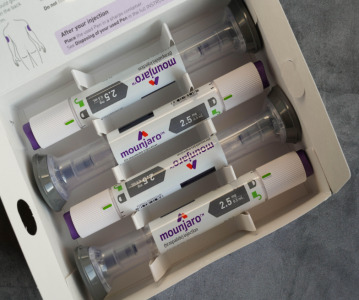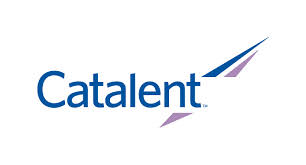NICE Recommendation Set to Leave Patients with Newly Diagnosed Advanced Melanoma Without Access to Yervoy (Ipilimumab)

Bristol-Myers Squibb has expressed its disappointment that the National Institute for Health and Care Excellence (NICE) has issued draft guidance which effectively denies access to Yervoy (ipilimumab) for NHS patients with previously-untreated advanced (unresectable or metastatic) melanoma, not involved in clinical trials.
Ipilimumab is currently recommended by NICE for the treatment of adults with previously treated advanced melanoma[2] and, in November 2013, European regulators extended its licence to include use in previously untreated patients, recognising both its potential to significantly increase overall survival and the unmet need in this patient population. Unless reversed, this decision will restrict access to all NHS patients that have not had prior therapy. Ipilimumab is a fully human monoclonal antibody that works by stimulating the patient’s own immune system to fight the cancer[4] and is one of the most significant treatment advances for this disease in many years.
The National Cancer Drug Fund (NCDF) panel has reviewed ipilimumab in previously untreated patients and decided to refer it for baseline commissioning by NHS England. This is a 6-month process, during which time patients will not be able to access ipilimumab through the National Cancer Drugs Fund.
“Clinically, there is little difference between pre-treated and untreated advanced melanoma patients and ipilimumab is licensed to treat both types,” said, Professor John Wagstaff, Consultant Oncologist at the South West Wales Cancer Institute & Swansea School of Medicine. “Today’s decision will be disappointing news for many patients with advanced melanoma who have not received prior treatment, leaving them without immediate access to this innovative therapy. Ipilimumab has demonstrated its ability to increase overall survival in this cancer, in some cases having a long-term effect on the survival of previously-treated patients. Making it available as a first treatment option should therefore be seen as an important step in helping to maximise survival in this disease.”
In previously treated advanced melanoma, ipilimumab has been shown to provide durable long-term survival in some patients[1]. Upon its approval in 2011, it became the first treatment to demonstrate an overall survival benefit in a Phase III clinical trial in this patient population. In the pivotal Phase III clinical trial assessing ipilimumab in previously treated patients, published in the New England Journal of Medicine in 2010, 46% (63 people out of 137) of patients were still alive at one year in the ipilimumab arm and 25% (34 people out of 136) in the comparator, a vaccine called gp100.
The median overall survival was 10.1 months among patients receiving ipilimumab alone, compared to 6.4 months among patients receiving gp100 alone.5 In 2013, Bristol-Myers Squibb announced results from a pooled analysis of survival data taken from previously-treated and previously-untreated patients who received ipilimumab at different doses and regimens, including combinations with other agents (n=1,861) [1,6]. When looking at survival over time, a plateau in the survival curve began at approximately 3 years, with a few patients followed for up to 10 years. Approximately 22% of patients (95% CI: (20–24%) were alive at 3 years (number of patients available for analysis at this time point was 254) [1,6]. The analysis was retrospective and did not include a control arm.
Ipilimumab’s use in previously untreated patients with advanced melanoma is supported by data pooled from Phase II and III studies[1], as well as from two retrospective observational studies in previously-untreated advanced melanoma patients who were treated with ipilimumab 3 mg/kg monotherapy (studies CA184- 332 and CA184-338) [7,8]. Available data have demonstrated that, as monotherapy at this 3 mg/kg dose, treatment with ipilimumab has the potential to improve the overall survival of patients, irrespective of whether they have received prior therapy or not for their metastatic melanoma [1,5,7,8]. The safety profile of ipilimumab in previously-untreated patients is also comparable to that seen in those who have been previously-treated [5,7,8].
Gill Nuttall, Melanoma UK commented: “Advanced melanoma is a devastating diagnosis, yet treatment options remain severely limited for many patients facing this disease. Unless reversed, this decision by NICE will sadly continue this trend and will leave some patients without a medicine that could potentially help extend their lives.”
Commenting on the decision, Amadou Diarra, European Vice-President and General Manager, Bristol-Myers Squibb UK & Ireland, said: “Bristol-Myers Squibb is disappointed in the draft recommendation that NICE has issued and we are committed to doing all we can to ensure that patients ultimately get access to this important treatment as early as possible. Ipilimumab is a pioneering immuno-oncology therapy that has been recognised by European regulators as an important option for advanced melanoma patients who have not received prior therapy. We therefore hope that the significant unmet need and clinical evidence backing this treatment will result in a review of this decision.”
References
1. Schadendorf D et al. Pooled analysis of long-term survival data from phase II and phase III trials of ipilimumab in metastatic or locally advanced, unresectable melanoma. Abstract # 24LBA, presented at the European Cancer Congress 2013
2. https://guidance.nice.org.uk/TA268 (accessed February 2014)
3. https://info.cancerresearchuk.org/cancerstats/keyfacts/skin-cancer (accessed January 2014)
4- www.medicines.org.uk/EMC/searchresults.aspx?term=yervoy&searchtype=QuickSearch (accessed: January 2014)
5. Hodi FS, O’Day SJ, McDermott DF, et al. Improved survival with ipilimumab in patients with metastatic melanoma. N Engl J Med. 2010; 10:1-13
7. Patt D, Juday T, Penrod JR et al. A community-based, real-world, study of treatment-naive advanced melanoma (AM) patients treated with 3mg/kg ipilimumab (IPI) in the United States. European Cancer Congress; Amsterdam, Netherlands 27 September–1 October 2013, Poster 3.751
8. Margolin K, et al. Effectiveness and safety of first-line ipilimumab 3 mg/kg therapy for advanced melanoma: Evidence from a U.S. multisite retrospective chart review. ECCO/ESMO 2013 Abstract #3742
9. Larkin J, Gore M. Malignant Melanoma (metastatic). Clinical Evidence 2008; 08; 1718
Related News
-
News The next 15 drugs up for negotiation with Medicare include several blockbusters
By now, everyone is quite familiar with the drug price negotiations taking place between drug companies and the Centres for Medicare & Medicaid Services (CMS) in the USA as part of measures being taken to reduce the cost of drugs for patients, to make ... -
News PSCI Welcomes Delpharm, Samsung Biologics, and Suven as First Supplier Partners
The pharmaceutical industry continues to evolve with an increasing focus on responsible sourcing, sustainability, and collaboration across the supply chain. Under a new model to recognise suppliers within the pharmaceutical and healthcare industry that... -
News Drug prices agreed upon as part of the US Inflation Reduction Act
The Inflation Reduction Act brought into constitution by the Biden administation in 2022, which proposed a drug price negotiation between the government and pharmaceutical companies, has reached it's first agreement. -
News Eisai Alzheimer’s drug authorised in UK but still faces obstacles
In partnership with BioArctic AB, pharmaceutical company Eisai has been granted Marketing Authorisation by the Medicines and Healthcare products Regulatory Agency (MHRA) for its Alzheimer’s disease drug product Leqembi. -
News Eli Lilly's weight loss drugs removed from the FDA's shortage list
The US FDA have recently updated their drug shortage list. The recently released list shows that all dosage forms of Eli Lilly's weight-loss drug Zepbound and their diabetes drug Mounjaro are now available. -
News Global advancements in the diagnosis and treatment of rare diseases: Rare Disease Day 2024
Rare Diseases Day is celebrated on the 29th February 2024 and represents the plight of rare disease patients to gain diagnosis and access to suitable treatment. -
News Pharmaceutical industry supports COP28 health stance in joint statement
As COP28 takes place over this week in Dubai, UAE, several bodies in the pharmaceutical and health industries have come together to announce support of key movements in sustainability in the sector, and to recognise sustainability as a health issue.&nb... -
News Biden backs Cold-War measures to shore-up medical supply chains
In a recent strategy to combat rising inflation and the cost of living crisis, President Joe Biden has invoked a Cold War-era act to increase investment in a selection of medicines and supplies.
Recently Visited
Position your company at the heart of the global Pharma industry with a CPHI Online membership
-
Your products and solutions visible to thousands of visitors within the largest Pharma marketplace
-
Generate high-quality, engaged leads for your business, all year round
-
Promote your business as the industry’s thought-leader by hosting your reports, brochures and videos within your profile
-
Your company’s profile boosted at all participating CPHI events
-
An easy-to-use platform with a detailed dashboard showing your leads and performance



.png)











